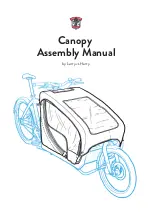
59
EN
III.
Settings
1.
Tyres
Check tyre pressures regularly. Riding with insufficiently inflated or
overinflated tyres can adversely affect performance, cause premature
wear, reduce battery life or increase the risk of accident.
If there is significant wear or there is a visible groove on one of the
tyres, replace it before using the bicycle. The manufacturer provides a
pressure range on the side of the wheel rim and in the following table.
The pressure should be adapted to the weight of the user.
Pressure
Model
Bike
size
Size of inner
tubes
Tyre size
PSI
Bar
EVERYWAY
E-CARRIER
28“
700 x 35-43
700 x 40
30 - 65
2 - 4.5
2.
Brakes
Before each use, check that the front and rear brakes are in perfect
working order.
The lever on the right activates the rear brake. The lever on the left
activates the front brake.
It is recommended that you distribute your braking force approximately
60/40 between the front and rear. The brake lever should not be in
contact with the handlebars, and the sheaths should not be bent at right
angles so that the cables can slide with a minimum of friction.
Damaged, frayed or rusty cables must be changed immediately.
This model is equipped at the front with a V-brake and for the rear with
a brake in the rear hub called a Roller brake.
WARNING:
In rain or damp weather, braking distances
are longer. It is recommended to pre-empt your braking
in this situation.
When cornering and braking, the handlebar can have
a negative influence on the response time of the
cyclist.
















































